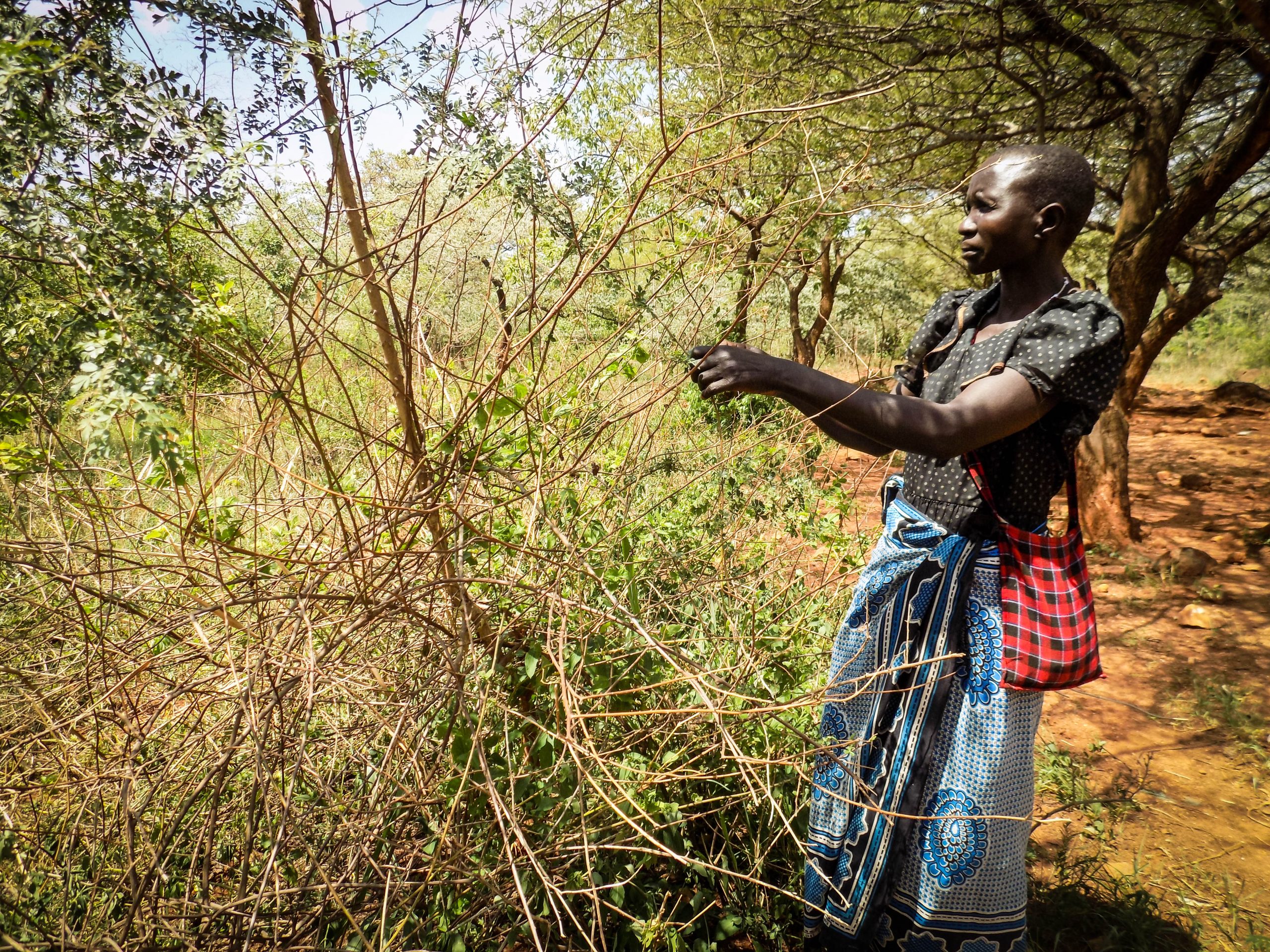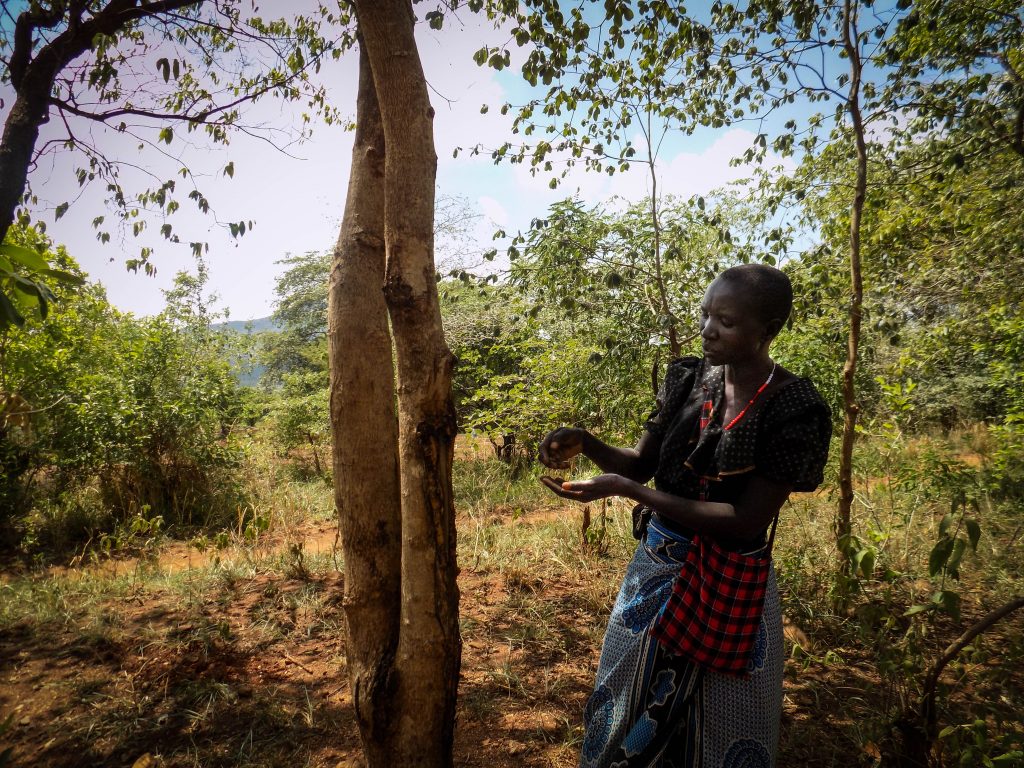
As she walks through Lokacikit Forest, Paulina picks roots, which she will boil to relieve her daughter’s upset stomach. This fast-acting local remedy has been used for years by people in this area of northeastern Uganda. In recent years, however, this plant has been difficult to find. As Paulina explains:
“When we were growing up, this is the root my mother would boil for us when had stomach problems. But a few years ago, you couldn’t even find these plants. There were no trees. No grass even for goats.”
Five years ago, the Lokacikit Forest did not exist: the land was bare except for burned bushes. People had cut down all the trees to use in construction and for firewood and charcoal. It was difficult to find medicinal plants, and fodder for animals was just as scarce.
To renew decimated forests like Lokacikit, in 2013 the USAID-funded Resiliency through Wealth, Agriculture and Nutrition (RWANU) project selected 10 communities to engage in community-managed natural regeneration activities and reduce the impacts of indiscriminate tree cutting and bush burning. Paulina, a member of the Lokacikit village group, participated in RWANU trainings on forest regeneration, including lessons on how to care for tree stumps to promote regrowth.

In addition to the trainings, RWANU provided trainees with tree seedlings to plant and taught female trainees how to construct fuel-efficient stoves to minimize the amount of firewood and charcoal needed for cooking.
“RWANU also taught us how to collect firewood—to pick only dead branches—and how to identify these branches, not cutting down the trees,” –Paulina
Today, trainees are successfully cultivating plants in Lokacikit Forest, growing the site from seven hectares to 13 hectares in the process. Within the forest, there is fodder for goats and sheep, and thorny shrubs, which the women planted, act as fences to keep in small animals. Community members are also now using the forest for environmentally friendly business activities, like beekeeping. Communities have been able to collect and sell greater quantities of honey as the trees have matured and more bees are attracted to the forest.
“I am very happy with RWANU. They taught us how to bring back our forest, and now other plants are also growing. I can come here and get medicine for people and also for animals. I have also put some beehives in the forest, and I make money when I sell the honey,” Paulina proudly stated.
Since 2013, RWANU has trained 325 men and women on good environmental practices to promote reforestation in southern Karamoja, underscoring the resilience of the land and the people.
More about our Resiliency through Wealth, Agriculture and Nutrition (RWANU) project.








